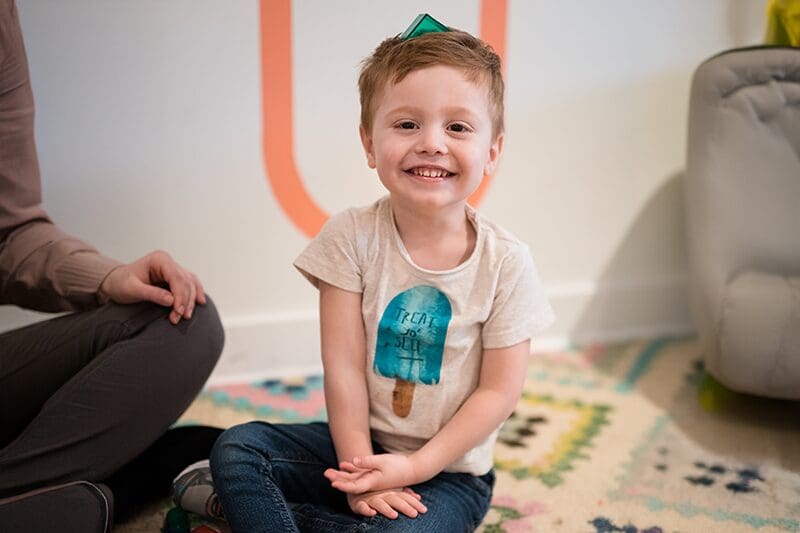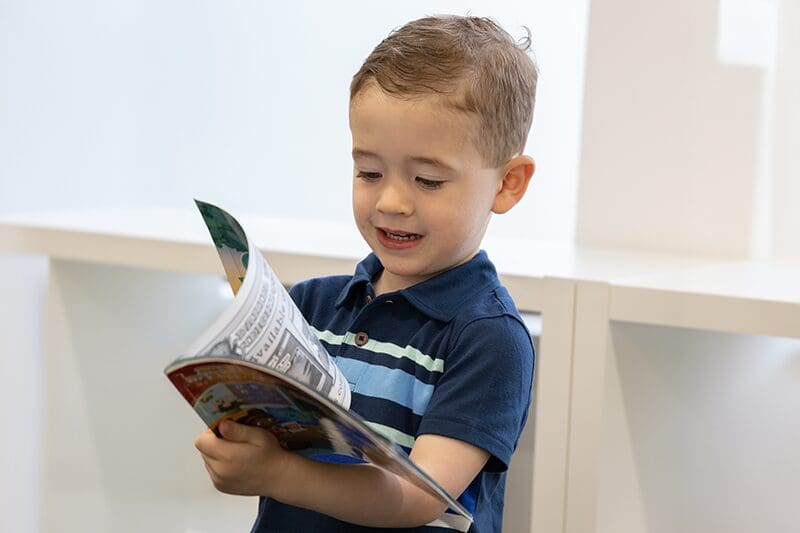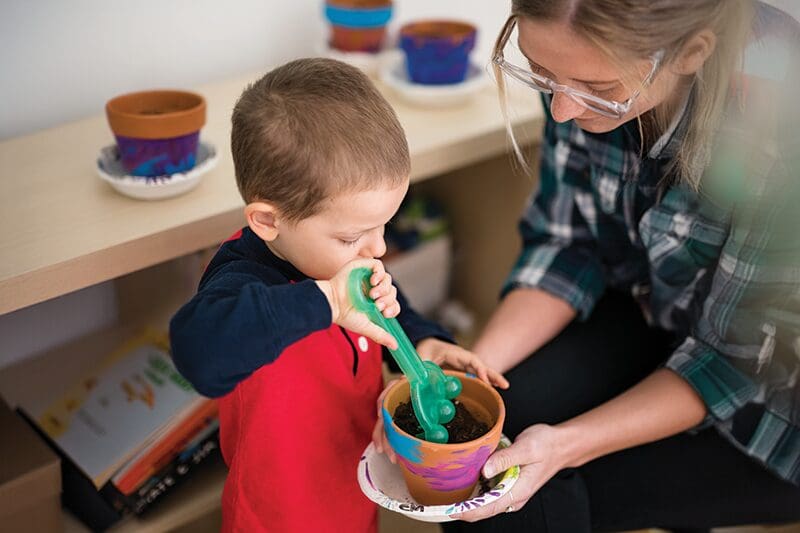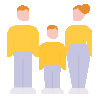
Expressive Language
Understanding Expressive Language
Expressive language involves various components, including:
- Spoken Communication: Using words and sentences to convey messages.
- Non-Verbal Communication: Using gestures, facial expressions, and body language to communicate.
- Syntax and Grammar: Structuring sentences correctly.
- Vocabulary: Knowing and using a wide range of words.

Common Signs of Expressive Language Disorders
- Limited vocabulary.
- Difficulty forming sentences or using correct grammar.
- Challenges in expressing thoughts and ideas clearly.
- Reliance on gestures or non-verbal communication instead of words.
- Frustration when trying to communicate.
Who May Benefit from Expressive Language Therapy?
- Children who have difficulty expressing themselves verbally and/or non-verbally.
- Children with limited vocabulary or difficulty using age-appropriate words.
- Children who struggle with sentence formation and grammatical structures.
- Children who rely heavily on gestures to communicate.

How Speech Therapy Can Help
Our experienced speech-language pathologists provide comprehensive evaluations to identify expressive language challenges and determine the best course of treatment. Based on the evaluation, we create an individualized treatment plan that focuses on:
- Expanding vocabulary.
- Improving sentence structure and grammar.
- Enhancing overall communication skills.

What to Expect from Our Therapy Sessions
- Assessment: We begin with a thorough assessment to understand your child’s specific expressive language needs.
- Personalized Plan: A customized therapy plan is developed to address your child’s unique goals.
- Interactive Activities: Our therapy sessions include engaging activities and exercises to make learning enjoyable and effective.
- Progress Monitoring: We continuously monitor your child’s progress and adjust the therapy plan as needed to ensure meaningful improvements.

Our Approach to Expressive Language Therapy
- Evidence-Based Practices: Our therapists use proven techniques to help children develop strong expressive language skills.
- Family Involvement: We involve parents and caregivers in the therapy process to provide support and reinforcement at home.
- Positive and Encouraging Environment: We create a supportive atmosphere where children feel confident and motivated to practice their communication skills.

Therapeutic Techniques We Use
- Vocabulary Building: Activities to expand your child’s vocabulary and encourage the use of new words.
- Sentence Structure: Exercises to help your child form grammatically correct sentences.
- Storytelling and Conversation: Encouraging your child to tell stories and engage in conversations to practice expressive language.
- Visual Supports: Using pictures, charts, and other visual aids to support language learning.

Benefits of Expressive Language Therapy
- Improved Communication: Enhanced ability to express thoughts, needs, and ideas clearly with a variety of communication partners.
- Increased Confidence: Greater self-assurance in social interactions and conversations.
- Enhanced Academic Performance: Better language skills contribute to improved performance in school.
- Overall Development: Strong expressive language skills support overall cognitive and social development.


"We had the most wonderful experience with Chicago Speech Therapy! Our speech pathologist, Miss Megan, developed a bond with our son almost immediately. By week two, he would await her arrival by the window in our front door! She quickly discovered all of his favorite things and would bring so many toys of her own that would keep him engaged and wanting to talk! She gave us (parents) tons of strategies to work with on our own in between her weekly visits. Our son made consistent progress under her care and has now been released from speech therapy ~ which actually makes us so sad ~ simply because we miss Miss Megan! She basically became part of our family and will be dearly missed. I couldn’t recommend Miss Megan and Chicago Speech Therapy more!"
"The process w/ CST was smooth, from the intake process, registration, processing insurance to on-going communication. Sarah was the Speech Therapist for our 9-year-old and she established a wonderful rapport with her and gained her trust over the months. I highly recommend CST."




